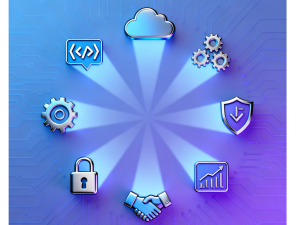Once seen as the realm of hoodie-clad outlaws in dim basements, “hacking” is getting a glow-up—and Gen Z is here for it.
From digital escape rooms to international Capture the Flag (CTF) competitions, students are now learning to hack ethically, and they’re having a blast doing it.
Cybersecurity has officially gone mainstream, and what used to be a niche interest is fast becoming a career path, a game, and in many cases—a passion.
Let’s break down how this generation is hacking the system (literally), and why the education space is finally catching up.
What Is Ethical Hacking, Exactly?
Ethical hacking is all about using hacking skills legally and responsibly to find vulnerabilities in computer systems, apps, or networks—before the bad guys do.
These are the white-hat hackers. The defenders. The digital first responders.
They’re hired by companies, governments, and organizations to test security systems, simulate cyberattacks, and plug any holes they find. In 2025, they’re not just needed—they’re in huge demand.
Why Gen Z Loves It
Cybersecurity isn’t just another tech job anymore—it’s a challenge. It’s a puzzle. It’s real-world impact.
Here’s what makes ethical hacking so Gen Z:
- Gamified learning: Tools like TryHackMe and Hack The Box turn cybersecurity into interactive games and simulations.
- Purpose-driven: Fighting cybercrime, protecting privacy, and defending organisations makes hacking feel meaningful.
- Creative problem-solving: Hacking isn’t just about code—it’s about curiosity, strategy, and thinking like the attacker.
- Online communities: From Reddit threads to Discord groups, students are collaborating, learning, and levelling up together.
What Are CTF Competitions?
CTF (Capture The Flag) competitions are like digital scavenger hunts where participants race to solve security challenges.
Think of it as a cyber Olympics where teams compete to:
- Find and exploit vulnerabilities
- Crack encryption
- Reverse engineer code
- Defend against threats in real-time
The best part? These events aren’t just for seasoned pros. There are beginner-friendly CTFs designed for high school and college students, making them a gateway into ethical hacking careers.
The Rise of Cybersecurity in Education
Colleges and schools are catching on fast. Programmes focused on cybersecurity and ethical hacking are exploding across:
- Community colleges
- Technical training centres
- Online course platforms
- High schools adding cybersecurity electives
Many institutions now offer CompTIA Security+, CEH (Certified Ethical Hacker), and other cert-aligned programmes. And with the average salary for ethical hackers now crossing six figures, it’s easy to see the appeal.
Learning to Hack: No Hoodie Required
Forget the Hollywood stereotypes. Today’s ethical hacking students are:
- Coding in light mode
- Wearing Crocs, not combat boots
- Running on iced coffee, not energy drinks
- Passionate about security, not chaos
They’re young, diverse, and digitally fluent. They want to protect systems, not destroy them. And they’re showing us all that the future of cybersecurity doesn’t have to look like a crime drama.
The Job Market Is Begging for Talent
The U.S. alone has over 750,000 unfilled cybersecurity jobs in 2025, and that number is only growing.
That means students who start learning ethical hacking now aren’t just ahead of the curve—they are the curve.
Employers are looking for:
- Practical experience (like CTF wins)
- Industry certifications (like CompTIA, CEH, and CISSP)
- Problem solvers who can think like attackers to defend like pros
Final Thoughts: This Is Just the Beginning
Ethical hacking isn’t a trend—it’s a revolution.
Gen Z is transforming the way we think about cybersecurity, one flag, one challenge, one captured port at a time.
So, if you’re a student curious about tech and want to do something that actually matters, ethical hacking might just be your next power move.
Want to start learning?
Ascend Education’s cybersecurity courses are aligned to top certifications, built by real instructors, and designed to get you hands-on fast—without needing to know how to code from day one.
Learn smart. Hack ethically. Join the good side.





